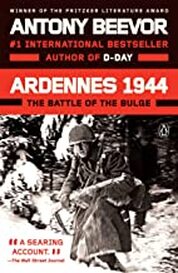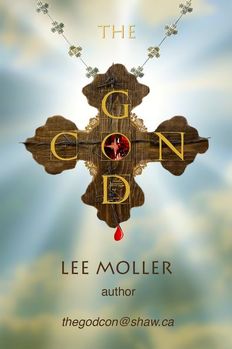 There is no WWII battle more famous than the Battle of the Bulge. It was more widely referred to initially as the Ardennes Offensive. The German code name for it was Watch on the Rhine. To put the battle in context: D-Day has come and gone; The Netherlands have been liberated and Antwerp captured; Operation Market Garden, and Montgomery's pet project, was a spectacular failure. As the allies approached Germany, resistance grew. But Market Garden was not Monty's biggest failure. Antwerp was. Monty took Antwerp and then turned his eyes East. He failed to liberate the north side of the Schelt, the long inlet that gives Antwerp access to the sea. It was up to the Canadian's to clear the Schelt, which they did at great cost, giving the allies their first really useful port. Antwerp was the target of the Ardennes Offensive. Here are the player: At the top: Churchill; Roosevelt, Hitler, DeGaulle (a general pain in the ass) and Stalin. Below Roosevelt was Eisenhower and under him Montgomery, Patton, and Bradley who was in over-all charge on the ground. In the East: Manteuffel, Model, Sepp Dietrich, and most famously, Pieper of the Waffen SS) . The SS, originally Hitler's body guard, had grown and become an army of itself: the Waffen SS (weaponized SS) . They were famously lead by Pieper, a fanatical Nazi (Pieper survived the war, spent 11+ years in jail; and retired until the French Resistance caught up with him 20 years later and killed him) led the best equipped Panzer division in the battle. Eisenhower ran the overall show. He has three squabbling generals to deal with. Montgomery was a ass, who thought only of British and personal glory. Montgomery would push for certain tactics, sometimes with good reason, but always prefaced every suggestion with "Put me in charge". Patton was famously arrogant and head strong. And Bradley was a wimp. Bradley did not figure much in the battle because he had head-quartered himself in Luxembourg and was out of touch with events. Bradley felt scapegoated because he was the one who thought that no offence could come from the Ardennes. But it did come. The book was an engrossing read. The horrors of war come through strongly. A minor example: US dead soldiers were booby trapped by fleeing Germans. Death was everywhere. Everyone knows the final outcome of the most costly battle in US history. If you have seen the movie, you are probably aware of the Massacre at Malmedy. In it, Peiper's men shot 84 US POWs in a field. In point of fact, the Germans shot just about everyone: POWs, locals thought to be in touch with the resistance, locals in general, and occasionally, each other. But Malmedy was big news and the American division that saw it returned the favor in kind. In one incident, twenty German's were under fire and decided surrender under a white flag. The American's waved the first man out, and then the rest followed. When the Germans were all out and exposed, the senior American gave the command, and they were all machine gunned. This had one positive effect: The German's would do almost anything to avoid having to surrender to that American division. A military side note: the deadliest weapon in the battle field of Europe was not the tank or the machine gun, or artillery. It was the humble mortar. Prior to the war's beginning, high frequency electronics was just getting off the ground. Television was introduced during the 1936 Olympics. Another development linked to television was not for public consumption; became England's secret weapon; and played a role in the Battle of the Bulge. Perhaps the best kept secret weapon of the battle was Pozit. It is better known today as a ground proximity fuse. Since artillery was invented, gunners knew that a shell that exploded overhead was far, far more deadly that one that augers into the ground and explodes. It was possible to do this without Pozit, but it was tricky at best. Pozit used a small single purpose radar signal to detect the ground approaching and trigger the explosion, typically about 30 feet above ground. It worked every time. One well place shell could kill everyone on a 100 meter radius that was not protected. Pozit had a very large effect on German morale as well as battle field outcomes. Another short remark about Montgomery: he was so pig-headed about getting overall ground command in the European theatre (which would never, ever happen… the Americans would never allow it) that he came within a word or two of losing his job. He railed against Eisenhower to an aide who had just come from Ike. The aide said Ike might replace him. "Replace me with who?!" asked Monty. The aide mentioned a name. Monty shut up, apologized as only a Brit can, and resigned himself to history. The index in weak in this book, but otherwise a really educational and sobering read.
1 Comment
|
AuthorLee Moller is a life-long skeptic and atheist and the author of The God Con. Archives
May 2024
Categories
All
|

 RSS Feed
RSS Feed